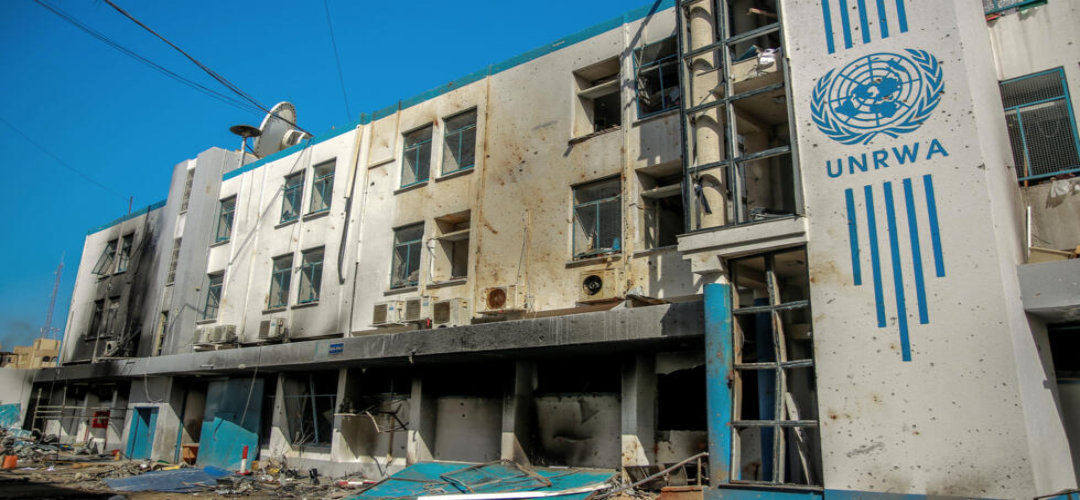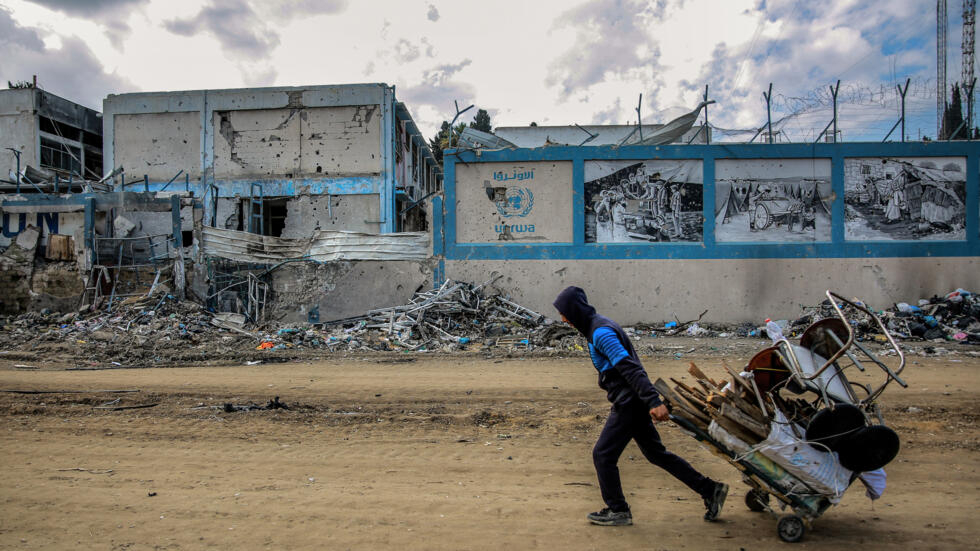UNRWA: Under the Scanner
April 6, 2024 | Expert Insights

The United Nations has a subsidiary called the United Nations Relief and Works Agency for Palestine Refugees in the Near East (UNRWA). It was set up by the United Nations General Assembly in 1949 to provide relief, healthcare, and education services for Palestinians. Palestinians have been ravaged by unstable occupational conditions and violence since the early 1900s, making the UNRWA a pool of relief for the displaced and injured.
However, in March, Israeli officials accused employees of the subsidiary of aiding in the attack in Israel on 7 October, which killed about 1,140 people. There was an immediate backlash from its Western donors who, post haste, stopped all funding, bringing all critical humanitarian activities of UNRWA to a grinding halt.
This has severe implications for the ongoing humanitarian aid being provided to Gaza. At the same time, it also highlights how UN agencies, despite their neutrality, often get caught up in local politics because of the large number of local employees they are constrained to use. This is not the first time such accusations have been levelled at a UN agency, nor will it be the last.
Background
The United Nations (UN) has played various roles in the Israel-Gaza conflict over the years, primarily aiming to facilitate peace negotiations, provide humanitarian aid, and monitor ceasefires. The United Nations Truce Supervision Organization (UNTSO) has been monitoring the ceasefire between Israel and its neighbouring countries since 1948. The UN has often acted as a mediator in peace talks between Israel and the Palestinians, facilitating negotiations intended to resolve conflicts and achieve a two-state solution. Despite the tricky circumstances surrounding Israel’s persistence in the war, underdeveloped and developing countries still look to the UN for agency.
UNRWA Commissioner-General Philippe Lazzarini did not reveal the number of employees nor the nature of their alleged involvement. But the U.S. announced it was halting funding to UNRWA because of the allegations against what it said were 12 employees who “may have been involved” in the Hamas attack. The allegations include kidnapping, distributing ammunition, and involvement in a massacre.
Since then, Australia, Canada, Italy, Germany, Finland, the Netherlands, Switzerland, the United Kingdom and Scotland have joined the U.S. and have temporarily halted funding to the agency. The Dutch minister for trade and development, Geoffrey van Leeuwen, said that the accusation of the attack on October 7 was that it was carried out with funding money - "our money". Ireland and Norway expressed continued support for UNRWA. To take up the slack in the funding, Saudi Arabia increased its contribution to UNRWA by $40 million.
Lazzarini was appalled by the reports and tweeted that the accusations came as a "shock." The UNRWA removed the employees allegedly involved, and an investigation to uncover the details is still underway. The commissioner also stressed that the people involved will indefinitely need to face the legal consequences because any act of violence by any members of the agency is severely detested.
Top Palestinian authorities and the Hamas have criticised the decision and have asked for it to be revoked. The UN Secretary-General urged aid resumption while highlighting UNRWA's vital role in Gaza amid crises. The UN Secretary-General requested that the Office of Internal Oversight Services (OIOS), the United Nations' highest investigative authority, investigate these specific claims. The UN Secretary-General is expected to attain the interim report within four weeks of the OIOS starting work.

Analysis
The budget of UNRWA for 2023 was a whopping $880 million. As per the UNRWA website, the top ten countries contributing to its operations in 2022 were the U.S., Germany, EU, Sweden, Norway, Japan, France, Saudi Arabia, Switzerland, Turkey, Canada and the Netherlands. It is, therefore, evident that the bulk of the financing comes from the West, hence the uproar on its alleged complicity in the October 7th massacres.
While the UN has been a prominent presence in the Middle East, it has never made any consequential contributions in finding solutions. The UN has conducted fact-finding missions and investigations into specific incidents or escalations of violence in the region, aiming to establish accountability and promote justice. UN bodies, such as the Office of the United Nations High Commissioner for Human Rights (OHCHR), monitor human rights violations in the region and advocate for the protection of civilians and adherence to international humanitarian law. However, it must be acknowledged the UN’s power extends only to a certain point.
The Israel-Gaza conflict is highly politicised, with significant disagreements among the United Nations Security Council and other groups impeding effective action. Veto powers and geopolitical interests have stymied agreements and blocked real movement towards a resolution.
UNRWA covers a vast landscape of activities in Gaza, and starving of funds will impact all aspects of routine life—food intake, fuel, medical care, and even schooling, as there are a large number of schools run by UNRWA.
Because of the regional nature of the Gaza conflict, the geopolitics of the region are involved as far as UNRWA is concerned. Late in March, Israel Katz, Israel's Ministry of Foreign Affairs, said on X, "We will work to garner bipartisan support in the US, the European Union, and other nations globally for this policy aimed at halting UNRWA's activities in Gaza."
However, Israel's announcement to increase humanitarian aid flow into Gaza, including the temporary reopening of the Erez crossing, signifies a response to international pressure and dire U.S. warnings regarding civilian protection. The move aims to prevent a humanitarian crisis, ensure aid delivery, and potentially impact US support based on Israel's actions. It also reflects a shift in rhetoric and expectations regarding Israel's conduct during the conflict. An Israeli statement reported that ‘Israel will allow the temporary delivery of humanitarian aid through Ashdod and the Erez checkpoint.’
However, whether UNRWA will be fully revived has yet to become clear.
Assessment
- While the UN has performed outstanding humanitarian work in various corners of the globe during the last 75 years, its record is blemished by its omissions or commissions on several occasions, be it the Croatian conflict or the ongoing peace enforcement mission in Congo. Its peacekeepers have been accused of various criminal offences, including sexual exploitation of minors, drug running, torture and even illicit trafficking in wildlife and wildlife products, as well as poaching. Therefore, the accusations on UNRWA need to be investigated with due diligence by neutral agencies.
- However, cessations of UNRWA operations should not be at the cost of a humanitarian tragedy in Gaza. Alternate arrangements have to be put in place, and the recent initiatives taken by Tel Aviv under strong American prodding are the way ahead. Arab nations like Saudi Arabia, Qatar, and the UAE, which have strong links in Gaza, need to step in to pick up the slack in funding.
- Over the years, humanitarian aid has been weaponised, and Gaza is not the first instance. The international community has to work out a system with a clear distinction between humanitarian aid and political/ security matters. UNRWA, too, will have to work hard to re-establish its neutrality and exclusively humanitarian identity, something that the International Red Cross and Red Crescent Movement has been able to achieve with marked success in its 160 years of existence.








Comments